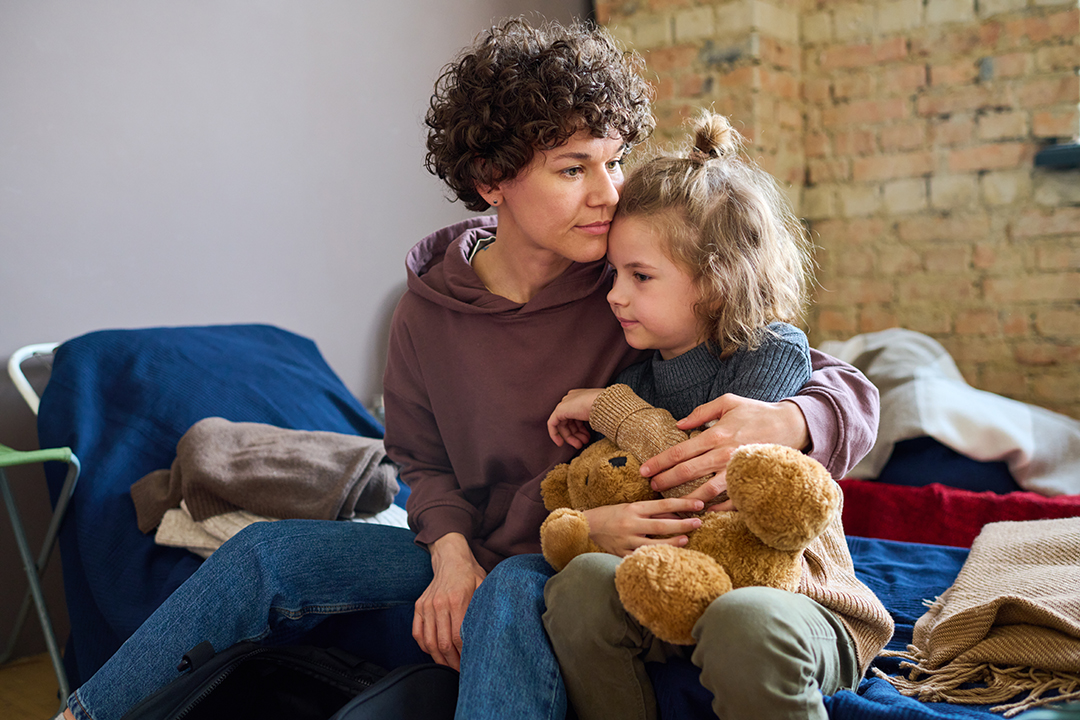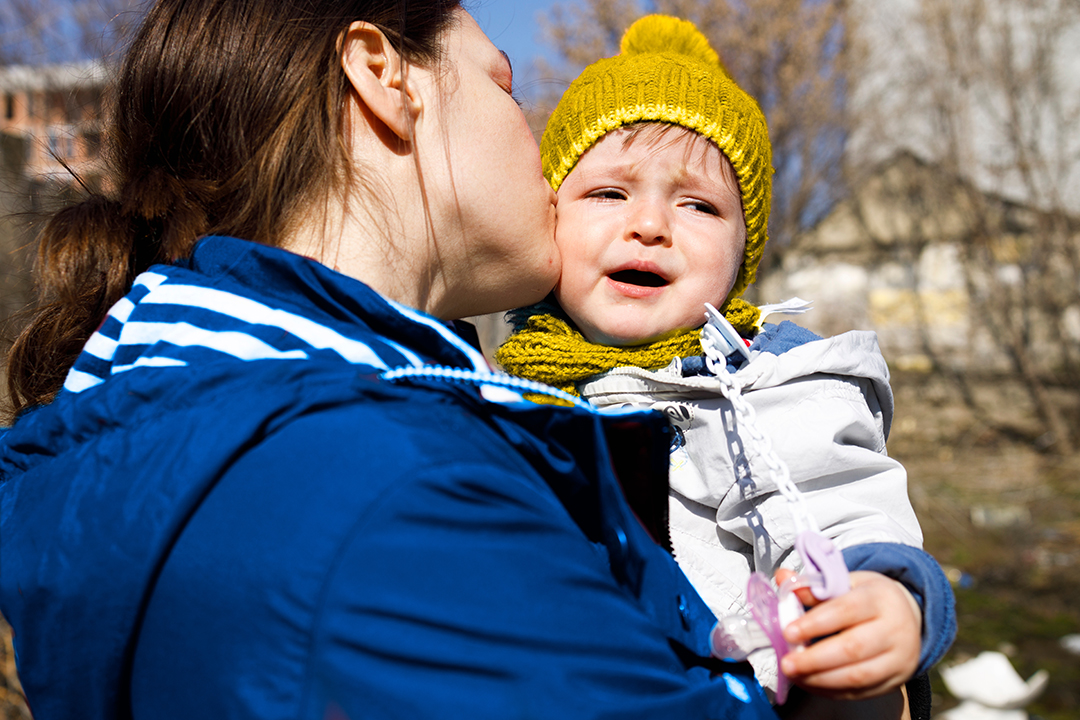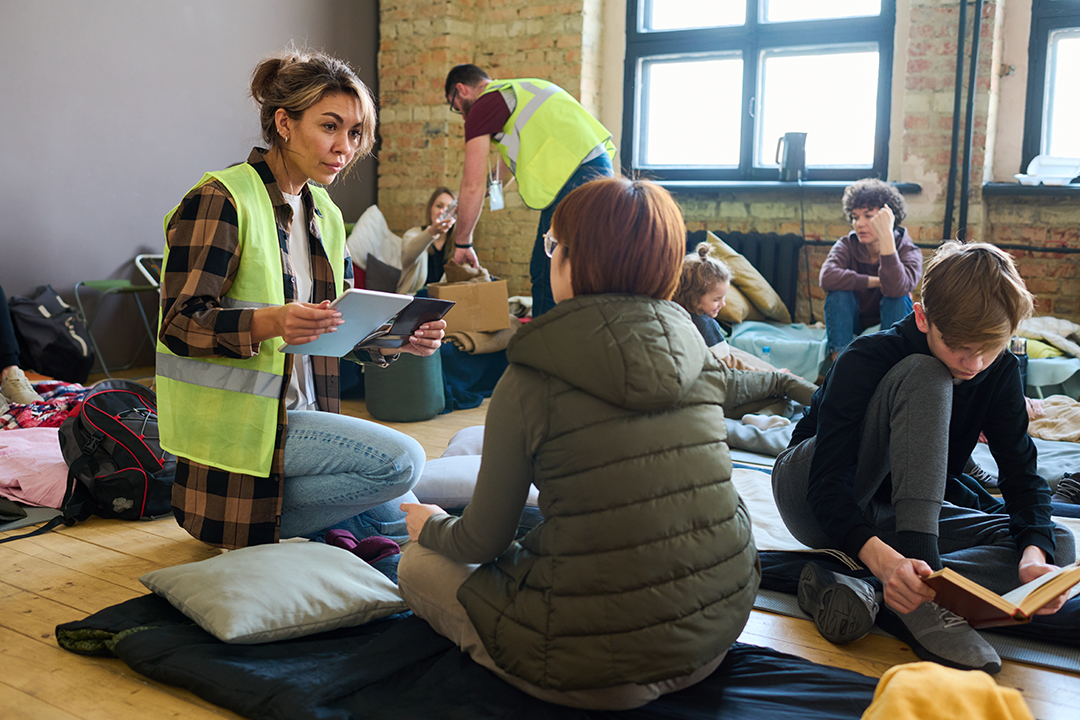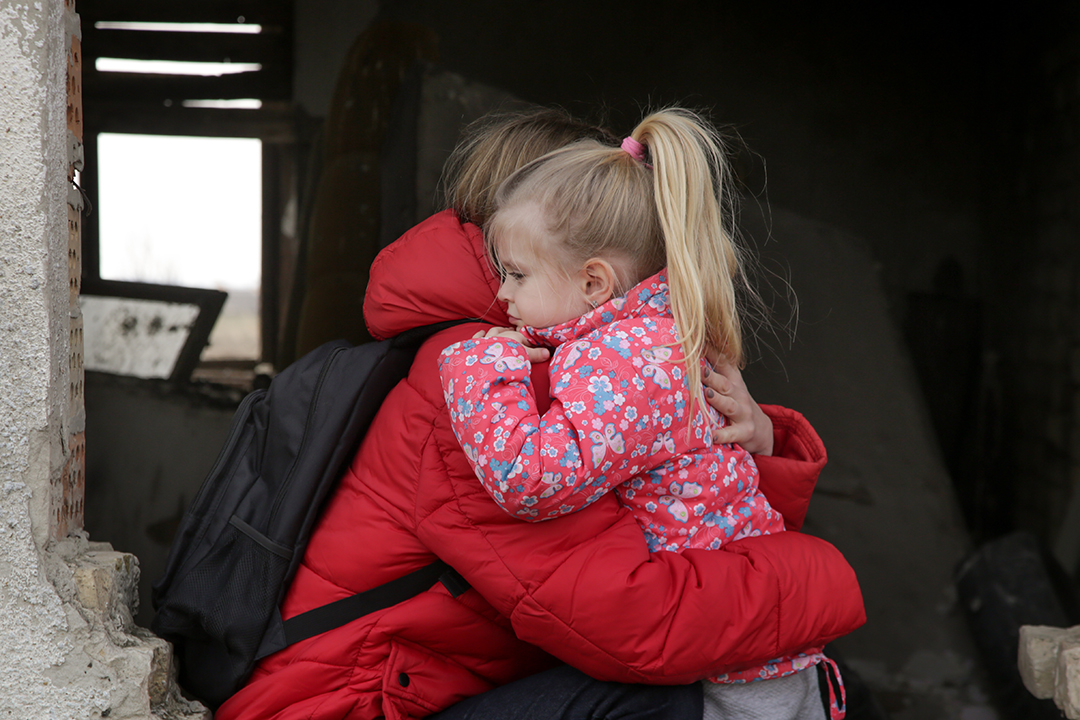Wars and armed conflicts rage in Jap Europe, the Jap Mediterranean, Africa and South-East Asia. A horrible toll in human lives is paid not solely by combatants, but in addition by civilians who usually are not immediately concerned in fight, together with kids and their mother and father or grandparents. They undergo from nightly alarms, bombardments and the continual anxiousness about their relations or mates on the frontline. On this weblog, we report on our research of parental burnout in Ukraine, carried out along with our colleagues Liliya Tsyhanyk, Tetyana Nehrych and Natalia Chemerys from Lviv Nationwide Medical College. We additionally introduce the upcoming on-line course ‘Households in Context of Warfare and Social Battle via the Lens of Attachment’.

Background: The Case of Ukraine
After the full-scale Russian invasion of Ukraine in 2022, round 14 million Ukrainians had been displaced, with almost 7 million changing into refugees overseas and others relocating to safer areas throughout the nation, largely moms and kids dealing with the conflict within the absence of husbands and fathers serving within the army.
After three years of conflict, at the very least 2,520 kids have been killed or injured (https://www.unicef.org/press-releases/one-five-children-ukraine-has-lost-relative-or-friend-escalation-war-three-years-ago?utm_source=chatgpt.com), and almost 20,000 have been kidnapped to Russia or Russian-occupied territories. This massive-scale deportation prompted the Worldwide Legal Court docket in The Hague to situation arrest warrants for Russian officers, together with President Putin, for conflict crimes involving kids and their caregivers (https://www.icc-cpi.int/information/situation-ukraine-icc-judges-issue-arrest-warrants-against-vladimir-vladimirovich-putin-and).
Current analysis exhibits that households of troopers, prisoners of conflict, and veterans face the very best danger of war-related stress problems in comparison with these with out such publicity (Martsenkovskyi et al., 2023). In March 2024, we carried out a quick on-line survey of 415 Ukrainian households with kids aged 0–12, all dwelling in wartime Ukraine. We targeted on parental burnout, systematically evaluating households with husbands in lively service, retired from service, or by no means within the army. Along with moms, we included grandmothers who cared for grandchildren attributable to parental absence.
Parental burnout, outlined as exhaustion from parenting, emotional distance from one’s kids and a way of parental ineffectiveness (Mikolajczak, Gross & Roskam, 2019; Mikolajczak et al., 2023), was assessed utilizing the Temporary Parental Burnout Scale (BPBs; Aunola et al., 2021).
Key Findings
- Greater than half of the mother and father (58%) met the validated cut-off criterion for burnout (Aunola et al., 2021). In comparison with mother and father in Canada, Poland, Hungary, Finland or Belgium with out conflict experiences, the place international burnout charges are estimated to be round 3%, the general Ukrainian prevalence was considerably increased.
- Parental burnout amongst Ukrainian moms has elevated dramatically lately. Simply earlier than the full-scale invasion in 2022, eight years after the beginning of the conflict with Russia’s occupation of Crimea in 2014, it was 11% (Zbrodska et al., 2022), which is barely one-fifth of the proportion recorded in 2024.
- Grandmothers confirmed the very best share of burnout (70%), whereas moms in households with a civilian father confirmed the bottom share (49%).
- Burnout signs had been strongly correlated (r = .63) with increased ranges of self-reported harsh parenting, as measured with a scale developed by Mikolajczak et al. (2019).

Implications: Why It Issues
For practitioners and policymakers, you will need to realise that the terribly excessive ranges of parental burnout sign severe psychological well being challenges forward, even nicely past the top of the conflict. Significantly worrisome is the destiny of grandmothers, that suffer most from burnout, presumably aggravated by the lack of their very own kids, whereas additionally being accountable for rising numbers of orphaned kids and adolescents.
We advised two interpretations for the excessive burnout amongst grandmothers with childcare tasks (Chemerys et al., 2025). The ‘getting old well being speculation’ proposes that older individuals might fear about being unable to information their grandchildren safely into maturity attributable to their larger danger of power illnesses or dying. Alternatively, or complementary, the ‘transgenerational trauma speculation’ means that grandparents might revisit or relive previous traumatic experiences which, in Ukraine, a part of the ‘Bloodlands’ (Snyder, 2010), are associated to the cumulative horrors of famine (Holodomor), genocide (Holocaust of the Jewish inhabitants) and murderous political oppression (Stalinism).
Future Instructions: Constructing on the Proof
Future analysis, constructing on proof describing the dreadful state of psychological well being in Ukrainian households (Martsenkovskyi et al., 2023; McElroy et al., 2024), ought to concentrate on evaluating intervention programmes to help households throughout and after the conflict. A number of programmes have already been applied, however there’s little proof of their effectiveness in a war-affected inhabitants. We’d like rigorous randomised managed trials (Van IJzendoorn & Bakermans-Kranenburg, 2024) to discover the feasibility, effectiveness and scalability of present interventions within the Ukrainian context. Over the previous 25 years, greater than 50 randomised trials have been carried out in areas affected by armed battle, and these might supply invaluable classes for future efforts.

Reflection: A Deal with Households in Context of Warfare and Social Battle By means of the Lens of Attachment
Sadly, Ukraine is simply one of many many international locations at present going via conflict or armed battle. In an eleven-day seminar collection for therapists, psychological well being professionals and humanitarian employees, we convey collectively audio system from numerous backgrounds to make clear trauma-informed and attachment-based frameworks to know the influence of displacement, violence and instability on household interactions and relationships. The collection additionally explores what could be completed to alleviate the psychological burden of youngsters and their households experiencing conflict and armed battle.
Medical reflection, insights from modern attachment principle, and rigorous empirical analysis are represented on this seminar, with examples from all over the world and a particular concentrate on Ukraine, India, Israel, and Palestine. Every lecture will likely be adopted by ample time for dialogue, enabling audio system and attendants to be taught from each other.
On-line Course on Households in Context of Warfare and Social Battle By means of the Lens of Attachment
The net collection of 11 month-to-month classes will likely be carried out from 11:00 am to 1:00 pm (UK time), beginning on October 25, 2025. The programme coordinators are Mario Marrone and Marinus van IJzendoorn, and the line-up of audio system comes from the UK, Portugal, Finland, India, Ukraine, Israel, Gaza, The Netherlands and Germany. The course is hosted by the Worldwide Attachment Nework (IAN UK, IAN India), in collaboration with IAN Spain. Ukrainian and Palestinian contributors are exempt from the charge.
For particulars and registration, see admin@ian-attachment.org.uk

NB – This weblog has been peer reviewed
References
Aunola, Okay., Sorkkila, M., & Roskam, I. (2021). Growth and validation of the Temporary Parental Burnout Scale (BPBs). Psychological Evaluation, 33(4), 1125–1137.
Chemerys, N., Tsyhanyk, L., Bakermans-Kranenburg, M. J., van IJzendoorn, M. H., & Nehrych, T. (2025). Parenting burnout in wartime: Exploring burnout in Ukrainian (grand-)moms two years after the 2022 Russian invasion. Journal of Household Trauma, Baby Custody & Baby Growth, 22(2), 275–292. https://doi.org/10.1080/26904586.2025.2470151
Martsenkovskyi, D., Karatzias, T., Hyland, P., Shevlin, M., Ben-Ezra, M., McElroy, E., Redican, E., Vang, M. L., Cloitre, M., Ho, G. W. Okay., Lorberg, B., & Martsenkovsky, I. (2023, September 25). Mother or father-reported posttraumatic stress reactions in kids and adolescents: Findings from the psychological well being of fogeys and kids in Ukraine research. Psychological Trauma: Principle, Analysis, Apply, and Coverage. Advance on-line publication. https://doi.org/10.1037/tra0001583
McElroy, E., Hyland, P., Shevlin, M., Karatzias, T., Vallières, F., Ben-Ezra, M., Vang, M. L., Lorberg, B., & Martsenkovskyi, D. (2024). Change in little one psychological well being in the course of the Ukraine conflict: proof from a big pattern of fogeys. European little one & adolescent psychiatry, 33(5), 1495–1502. https://doi.org/10.1007/s00787-023-02255-z
Mikolajczak, M., Aunola, Okay., Sorkkila, M., & Roskam, I. (2023). 15 years of parental burnout analysis: Systematic evaluation and agenda. Present Instructions Psychological Science, 32(4), 276–283. https://doi.org/10.1177/09637214221142777
Mikolajczak, M., Gross, J. J., & Roskam, I. (2019). Parental burnout: What’s it, and why does it matter? Medical Psychological Science, 7(6), 1319–1329. https://doi.org/10.1177/2167702619858430
Snyder, T. (2010). Bloodlands: Europe between Hitler and Stalin. Primary Books.
Van IJzendoorn, M.H., & Bakermans-Kranenburg, M. J. (2024). Issues of Significance. Replication, Translation, and Tutorial Freedom in Developmental Science. London: UCL PRESS. ISBN: 9781800086500 https://www.uclpress.co.uk/collections/open-access/merchandise/234011 (free downloadable).
Zbrodska, I., Roskam, I., Dolynska, L., & Mikolajczak, M. (2022). Validation of the Ukrainian model of the Parental Burnout Evaluation. Frontiers in Psychology, 13, 1059937. https://doi.org/10.3389/fpsyg.2022.1059937


